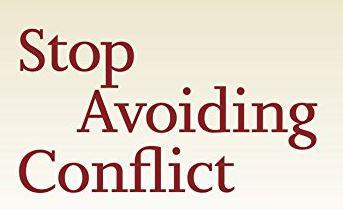Many people think that avoiding conflict is the best, using it to suppress an unpleasant encounter. Most of the times, they will just ignore the conflict, shut down, change the subject or pretend it’s not happening so as to avoid conflict. However, we talk about why avoiding conflict is really not a good idea.
3 Types of Conflict Avoidance
People avoid conflict by doing the following:
Those who ignore the problem

Most people tend to just ignore the problem. That way, they don’t really have to deal with any of the results. People dread the outcome of the situation more that’s why they end up ignoring the problem.
Those who change the subject
Changing the subject is also another form of conflict avoidance. This happens when people don’t want to deal with the result and just choose to focus on something else instead.
Those who shut down
Shutting down so as to avoid confrontation usually makes situations worse, especially in situations where the matter needs to be resolved promptly.
While it’s better to avoid conflict in some situations, it’s usually better to just try and overcome whatever conflict is at hand.
Why it’s important to deal with conflict avoidance?
Emotional Health
Avoiding conflicts mean that we suppress our emotions most of the times, which is quite unhealthy at the end of the day. Suppressing feelings usually result in the emotions surfacing elsewhere as anger or anxiety, and usually when you least expect it. Most times, you will find your tensions bubble over in unnecessary situations simply because you bottle demotions inside.
Creation of Fear
Conflict avoidance teaches the brain that that’s what keeps us safe from unpleasant feelings. At the end of the day, we put off what we really need to do. Avoiding conflict may feel good at that time but it will increase our fear in the long run. We suggest that you deal with conflict right at that moment so that you don’t store up fearful emotions or trauma.














